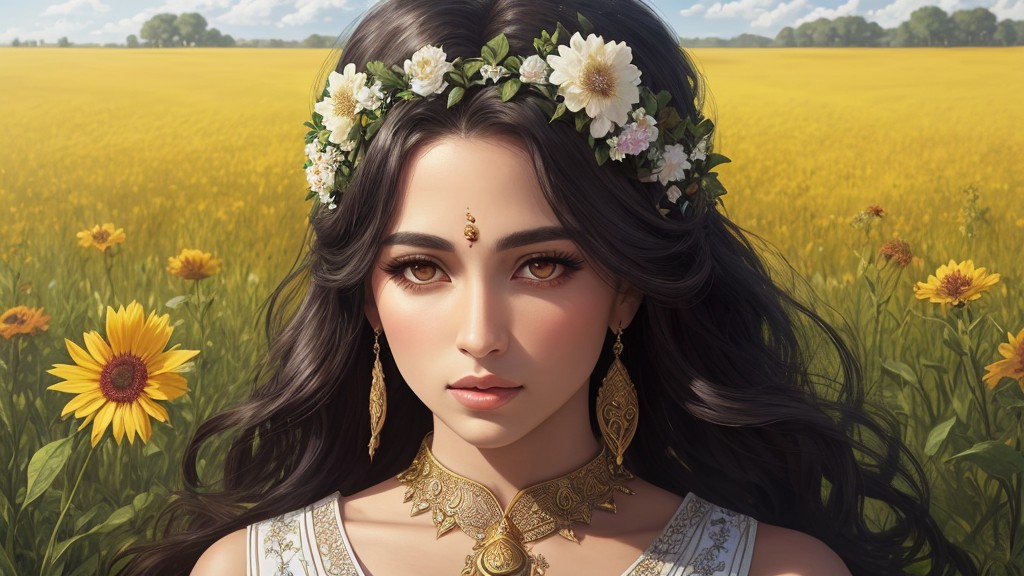
Greek mythology intertwines gods and goddesses with the natural world, often assigning specific plants and flowers to symbolize their attributes and domains. These sacred plants were used in rituals, offerings, and even games held in honor of the gods. Below are some Greek deities and their corresponding botanical connections:
Athena – Olive Tree
Athena, the goddess of wisdom and strategic warfare, is often depicted with an olive branch. The olive tree, with its resilient nature and valuable fruit, symbolizes peace, wisdom, and victory, reflecting Athena’s intellect and strategic prowess. This sacred tree played a vital role in Greek culture, from olive wreaths crowning victors to the sacred groves of Athens.

Poseidon – Wild Celery
Poseidon, the god of the sea and earthquakes, had wild celery as one of his sacred plants. Wild celery, along with the pine tree, was used to crown victors at the Isthmian Games, a festival held in his honor. This resilient plant, which thrives in damp conditions, mirrors Poseidon’s domain over the seas and the ever-changing tides of fate.
Hades – Asphodel
Hades, the ruler of the underworld, presides over fields of asphodel flowers. These pale blossoms symbolize remembrance, mourning, and the transition between life and death, embodying the solemnity of Hades’s domain. In mythology, asphodel fields were where souls of the dead resided, making this flower a poignant symbol of the afterlife.
Eros – Roses and Flowers
Eros, the god of love and desire, is deeply associated with flowers, especially roses. According to Greek mythology, at the wedding of Dionysus and Ariadne, Eros wove garlands of red roses as a herald of their union. Another myth describes how, after Psyche poured her blood upon him, the first rose sprouted on Earth, followed by all flowers and herbs. This story beautifully illustrates the transformative power of love, much like our goddess-inspired body oils, which use floral-infused botanicals to enhance your own radiance and allure.
Dionysus – Ivy
Dionysus, the god of wine and revelry, is adorned with the twining vines of ivy. This evergreen plant symbolizes vitality, indulgence, and the uninhibited pursuit of pleasure, echoing Dionysus’s joyful and liberating presence. Just as ivy weaves through ancient ruins, reminding us of nature’s enduring power, our luxurious bath and body products allow you to indulge in self-care rituals inspired by divine decadence.
Demeter – Wheat
Demeter, the goddess of agriculture and fertility, is often depicted with sheaves of golden wheat. This staple crop symbolizes abundance, nourishment, and the cycle of life, reflecting Demeter’s nurturing influence. Our botanical-infused bath salts and body scrubs, inspired by the goddess’s bountiful gifts, provide a grounding and replenishing experience for your skin and soul.
Apollo – Laurel Tree
Apollo, the god of the sun, music, and prophecy, is forever linked to the laurel tree through the tragic love story of Daphne. As she fled Apollo’s pursuit, she was transformed into a laurel tree, which became sacred to him. Laurel wreaths were worn by victors of the Pythian Games, symbolizing honor and achievement. Our products capture Apollo’s radiant and artistic energy, helping you embrace the warmth of the sun and the vibrancy of creativity.
Artemis – Cypress Tree
Artemis, the goddess of the hunt and the moon, is closely tied to the cypress tree. This evergreen was abundant in sacred groves dedicated to her, symbolizing protection, endurance, and mystery. Ancient Greek texts mention Artemis’s presence among dense cypress forests, reinforcing her connection to nature and the wild. Our Artemis-inspired products evoke the fresh, earthy scents of a moonlit forest, perfect for those who seek adventure and independence in their self-care rituals.
Embrace the Divine Essence of Greek Mythology
Explore our collection of floral and botanically inspired products, each designed to bring a touch of mythological beauty into your daily routine. From fragrant body oils infused with luxurious sunflower, evening primrose, camelina, and meadowfoam oils to nourishing body butters and scrubs, every item is crafted to reflect the enchanting essence of the deities.
Indulge in self-care inspired by ancient legends—shop now and embark on a journey through the mythical gardens of Greek mythology. Let every bath, oil, and scrub transform your routine into a sacred ritual worthy of the gods!



